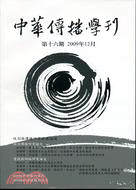 閱覽人數: 1409
閱覽人數: 1409
December
2009
No. 16
性別與傳播研究前瞻論壇
The Current Scholarship and Suggestions for Future Research in Feminist Studies頁數:93 - 129
作者(中)
張卿卿
作者(英)
Ching-Ching Chang
關鍵詞(中)
總統大選 ; 競選廣告 ; 議題所有權
關鍵詞(英)
issue ownership ; political advertising ; presidential campaigns
中文摘要
本研究從議題所有權理論出發,以2008年總統大選選戰作為情境進行來探討競選廣告採取不同策略(強調候選人政黨之「所屬議題」或「非所屬議題」),其說服效果的差異。文獻回顧耙梳出四個議題策略效果的可能假說,分別為「所有權優勢假說」,「新領域優勢假說」、「政黨偏頗假說」與「議題攸關性優勢假說」,實驗-驗證這四個假說。實驗二進一步探討「議題所有權」效果是否會受到廣告比較手法(「吾優於彼」VS.「彼劣於吾」)的影響。
英文摘要
Drawing upon issue ownership theory, this paper explores the relative effectiveness of political ads featuring issues owned by the party of the candidate and ads featuring issues owned by the opposing party in the 2008 presidential campaign in Taiwan. Experiment one tests four competing hypotheses. The results show supports for the superior effects of ads featuring owned issues among non-partisans. Experiment two examines whether the two comparative appeals, I-am-better-than-the-competitor or the-competitor-is-worse-than-me, moderate the effectiveness of ads featuring issues owned by the party. The results demonstrate that, when ads feature owned issues, the two appeals do not generate different effects; whereas when ads feature issues owned by the opposing party, I-am-better-than the competitor appeal is more effective.